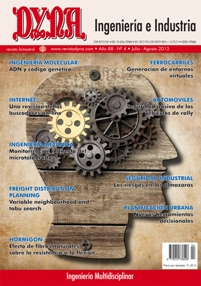¿WHERE ARE THE MAIN OCCUPATIONAL HAZARDS IN SPANISH OLIVE OIL MILLS?
Keywords:
condiciones de trabajo, industria, aceite de oliva, almazara, seguridad y salud, working conditions, industry, olive oil, mill, health and safety.Abstract
ABSTRACT This paper aims at examining the working conditions in the olive oil mill industry in Spain. Knowing the working conditions, production processes and equipment used in this industry can help defi ne and implement better health and safety strategies and actions. After visits, inspections and interviews carried out in three olive oil mills, we drew up a questionnaire. With the collaboration of the Labor Authority, during the two-year research period, 2009–2010, we put questionnaires to the managers of 184 olive oil mills. Our survey aimed at a statistical analysis of the production and prevention organization of the companies, with special interest in the health and safety management policy. Work in olive oil mills cannot be described as regularly arranged for one, two or three shifts, because the shift schedule is determined by production needs. The two-stage continuous system is the most widely used production method. The increasing use of the two-stage method has significantly reduced the environmental impact of olive oil wastewater. The impact of noise, the lack of order and cleanliness are familiar aspects of the sector.Downloads
Published
2013-07-01
Issue
Section
ARTICULOS

